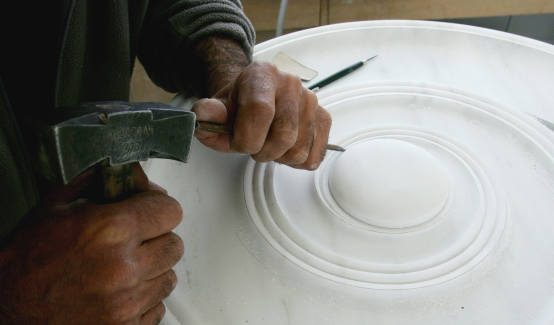- ΣΧΕΤΙΚΑ
- ΤΕΛΕΥΤΑΙΑ ΝΕΑ
- ΗΜΕΡΟΛΟΓΙΟ
- ΕΚΠΑΙΔΕΥΣΗ
- ΕΚΚΛΗΣΙΕΣ
- ΓΙΝΕ ΜΕΛΟΣ
- Ελληνικό Κέντρο
Eventlist
Εκδήλωση

- Τίτλος:
- Open Seminar: Manufacturing in Classical Athens
- Πότε:
- 17.03.2016 19.00 h
- Που:
- Greek Centre Melbourne (Mezzanine) - Melbourne
- Κατηγορία:
- Εκπαίδευση
Περιγραφή
Presenter: Dr Peter Acton
Entry: FREE
Synopsis
Few historians have paid any attention to manufacturing in classical Athens, though the high standard of living the city enjoyed suggests it was very important. The prevailing wisdom asserts that it consisted of small, inefficient enterprises for which the profit motive was irrelevant, even though there is plenty of original evidence to the contrary.
Peter Acton explores all aspects of manufacturing in Athens in the fourth and fifth centuries BCE through a modern business lens. Before the widespread use of machinery that arrived with the Industrial Revolution there were only a few ways to build a large enterprise. These can be identified through a framework based on the concepts of competitive advantage and barriers to entry. It shows which segments were capable of supporting large firms and which remained the province of the home craftsperson, and how much scope each offered for wealth creation and social advancement.
The analyses cover a wide range of manufacturing activities and demonstrate that a very large proportion of the residents, at all social levels, had at least some engagement in manufacturing, including many citizens and their families. Limited scope for competitive advantage meant more opportunities for casual engagement and that was fundamental to the workings of the Athenian political system. Changes brought about by the Industrial Revolution mean that a participatory democracy like Athens could not exist today, although the Information Revolution may be overturning this again. The internet is eliminating many of the economies of scale enjoyed by large companies, and increased opportunities (and young people's preferences) for freelance or portfolio careers will enable more people to participate in community governance without harming their livelihood. Can we take advantage of this change?
Bio
Peter Acton has a degree in Classics from Oxford and an MBA from Stanford, where he was a Harkness Fellow and an Arjay Miller Scholar.
After working in industrial relations in the UK, he spent 20 years with The Boston Consulting Group in Europe and Australia and was Managing Partner of the Melbourne office from 1995-1999. He is a Fellow of the Australian Institute of Company Directors and of the Australian Institute of Management, a member of the Peter McCallum Research Committee and a Director of the Centre for Cultural Materials Conservation.
In 2010 he was awarded a PhD in Ancient History by the University of Melbourne. His book, Poiesis, on manufacturing in classical Athens, was published by Oxford University Press in 2014. His experience has convinced him that the contribution a humanities education can make to commerce, as well as to life more generally, needs to be better appreciated, and he is the Founding President of Humanities 21.
Donors
We thank the following donors: Oplitikon.
During the course of the year considerable expenses are incurred in staging the seminars. In order to mitigate these costs individuals or organisations are invited to donate against a lecture of their choice. You too can donate for one or more seminars and (optionally) let your name or brand be known as a patron of culture to our members, visitors and followers, as well as the broader artistic and cultural community of Melbourne. Please email: Αυτή η διεύθυνση ηλεκτρονικού ταχυδρομείου προστατεύεται από κακόβουλη χρήση. Χρειάζεται να ενεργοποιήσετε την Javascript για να τη δείτε. or call 03 9662 2722.
We also thank the following corporate sponsors:![]()
Τόπος διεξαγωγής
- Venue:
- Greek Centre Melbourne (Mezzanine) - Διαδικτυακός τόπος
- Οδός:
- 168 Lonsdale Street
- ΤΚ:
- 3000
- Πόλη:
- Melbourne
- Νομός:
- VIC
- Χώρα:
-

The Mezzanine floor (press "M" in the elevator) of Greek Centre Melbourne - located at the corner of Lonsdale and Russell streets in Melbourne, Australia.
EventList powered by schlu.net











